ECONAT won CEEweb Award
17 December 2014
Winners of the CEEweb Award on excellence in biodiversity protection were announced today. CEEweb was expecting good, worth to follow examples in three categories: Managing our natural resources, Connecting and restoring habitats and greening up urban spaces, as well as, Involvement of the businesses in nature conservation. The jury, consisting of professionals as well as communication experts, selected four trailblazers in the three categories, all of which have been contributing significantly to nature conservation.
ADEPT Foundation from Romania does habitat conservation through traditional, sustainable land management with the involvement of local communities. With this, they do not only protect the environment, but also conserve the cultural heritage of the region as well as provide economic benefits for the people. BROZ (Regional Association for Nature Conservation and Sustainable Development) from Slovakia and Lithuanian Fund for Nature create stable habitats for valuable species, while enhancing public awareness of their importance. Finally yet importantly, the Croatian Brod Ecological Society (BED) reintroduces cattle in abandoned areas to fight successfully against the aggressive dispersal of invasive species.
The award aims to demonstrate how civil society and other stakeholders contribute to the conservation of European biodiversity. With the winners and other good examples, CEEweb is celebrating its 20th anniversary and promoting excellence of nature conservation in Central and Eastern Europe. The call was open to CEEweb members and other organisations and entities. Each category includes a 500 euros prize.
Check out the winner cases:
ADEPT Foundation: Habitat conservation through traditional farming
Regional Association for Nature Conservation and Sustainable Development (BROZ): Protection of birds and bats in buildings
Lithuanian Fund for Nature: Species conservation through strengthening connections between protected areas
BROD Ecological Society (BED): Reintroduction of cattle in abandoned areas
CEEWeb's information
The turtles have returned back home
16 July 2014
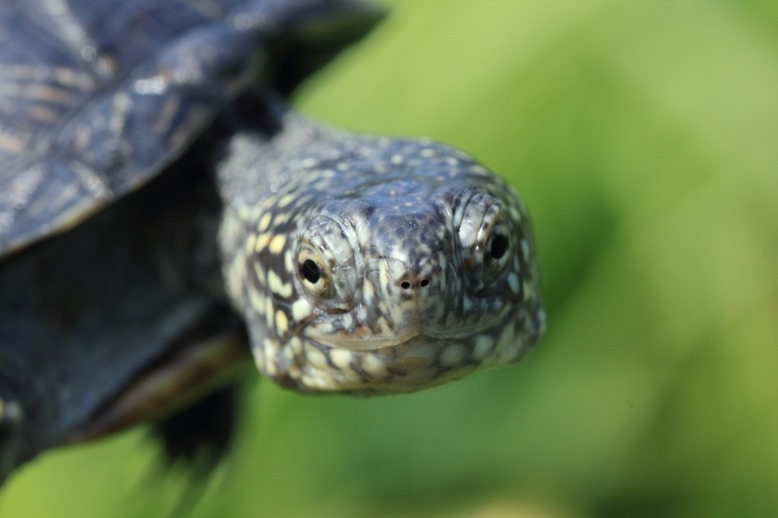 They could die before hatching. They could be eaten by the predators. They could freeze the first winter... However today they are alive and healthy, have significantly grown up and not so vulnerable anymore, they are diving in their native ponds – 103 in Lithuanian zoological garden reared European pond turtles returned to their native ponds in the southern Lithuania.
They could die before hatching. They could be eaten by the predators. They could freeze the first winter... However today they are alive and healthy, have significantly grown up and not so vulnerable anymore, they are diving in their native ponds – 103 in Lithuanian zoological garden reared European pond turtles returned to their native ponds in the southern Lithuania.
 Aiming to conserve population of European pond turtle (Emys orbicularis) in Lithuania, the turtle eggs, which were laid in the insecure places, were collected and hatched in the incubators in Lithuanian zoological garden. Almost 150 turtles hatched in the zoo from the eggs, collected from the insecure places during three years. 103 turtles, which were already released back to the wild, will significantly contribute to the conservation of the turtle population, there are only 400 – 500 turtle individuals living in the nature in Lithuania. 25 turtle juveniles are still growing stronger in the zoo and getting ready for the release next year.
Aiming to conserve population of European pond turtle (Emys orbicularis) in Lithuania, the turtle eggs, which were laid in the insecure places, were collected and hatched in the incubators in Lithuanian zoological garden. Almost 150 turtles hatched in the zoo from the eggs, collected from the insecure places during three years. 103 turtles, which were already released back to the wild, will significantly contribute to the conservation of the turtle population, there are only 400 – 500 turtle individuals living in the nature in Lithuania. 25 turtle juveniles are still growing stronger in the zoo and getting ready for the release next year.
Examples of ecological networks and legal preconditions for their formation in Lithuania
4 June 2014

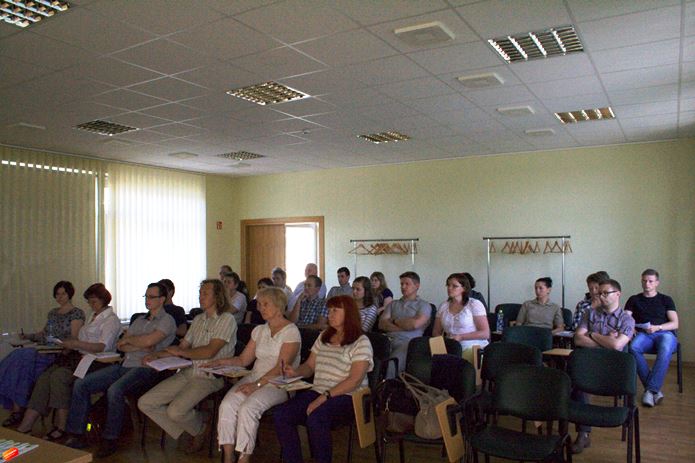

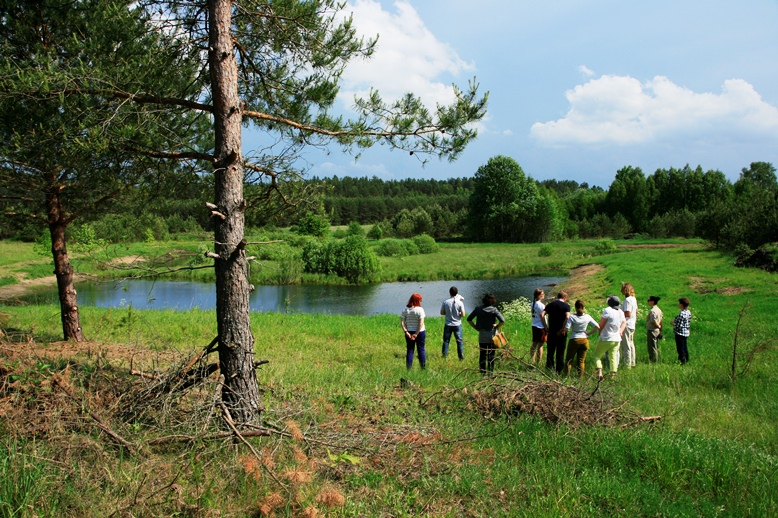 Ecological network, created during the Project, was presented in a seminar „Examples of ecological networks and legal preconditions for their formation in Lithuania“ on the 26th of May. The seminar was organised to present ideas and practice of ecological network development: criteria and methods for the selection of potential areas, planning, and legal regulation. Lithuanian and Polish examples of national and local ecological networks were examined. Aiming to draw attention how important for the species conservation is the process of planning - to the workshop we invited the specialists, who are responsible for planning and adjustment of general and special plans.
Ecological network, created during the Project, was presented in a seminar „Examples of ecological networks and legal preconditions for their formation in Lithuania“ on the 26th of May. The seminar was organised to present ideas and practice of ecological network development: criteria and methods for the selection of potential areas, planning, and legal regulation. Lithuanian and Polish examples of national and local ecological networks were examined. Aiming to draw attention how important for the species conservation is the process of planning - to the workshop we invited the specialists, who are responsible for planning and adjustment of general and special plans.
During the seminar a director of a department of Protected areas and Landscape in the Ministry of Environment Vidmantas Bezaras presented problematics of the „green“ networks planning: from idea to the legal regulation; dr. Giedrė Godienė presented development of the ecological networks in Europe and Lithuania; the project manager Dalia Bastytė presented concrete works which were carried out creating the ecological network in the Southern Lithuania, helpers of the project Birutė Armokavičiūtė and Emilijus Pranckus presented a GIS model designed for creating ecological network for amphibians species, which can be used in the other parts of Lithuania; and Marcin Górny from Bielowiza Mammal Research Institute presented experience from Poland, raising a question is ecological network in Poland a real protection or just a project?
After presentations the participants of the workshop visited places, important for the pond turtles, which are a part of the ecological network, created during the project, inspected restored habitats and discussed possibilities to contribute to the rear species conservation. A publication “Pilot ecological network for reptiles and amphibians in the Southern Lithuania” was distributed during the workshop. 31 participant from various institutions participated in the workshop, such as municipalities, State Land Fund, Service for the State Protected Areas, Alytus Regional Environmental Department, Vilnius University, Aleksandras Stulginskis University, Regional Parks.
Long term maintenance of restored habitats of reptiles and amphibians and rearing of turtle juveniles in Poland
18 April 2014
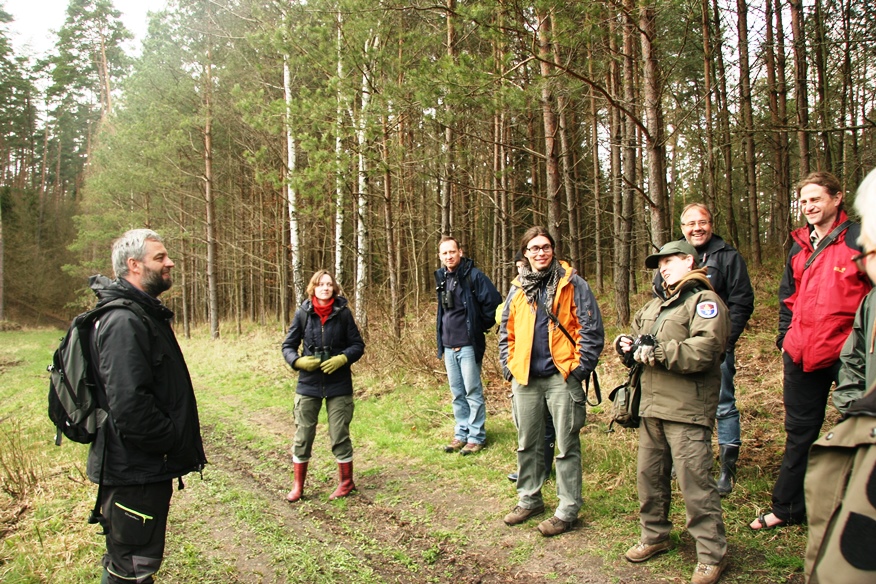
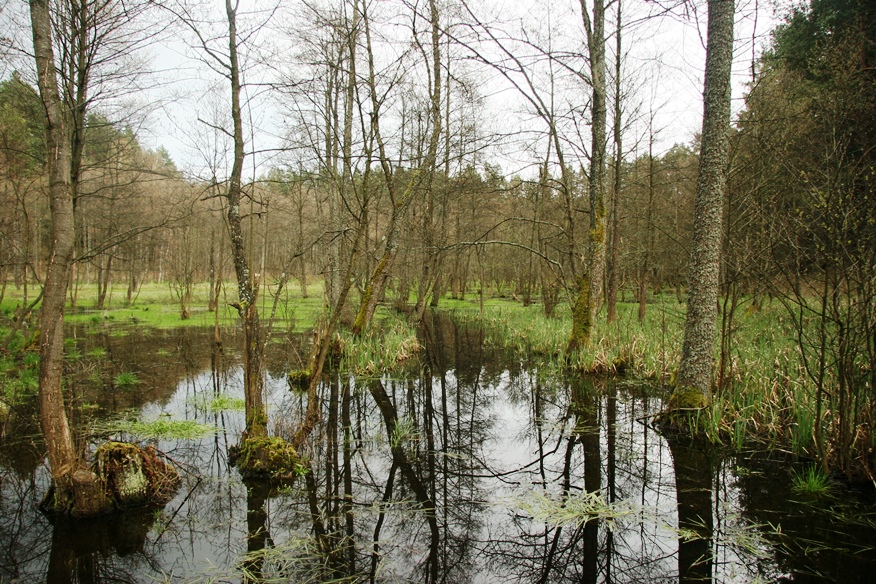 When turtles and tree frogs woke up from hibernation, the project participants travelled to a study tour. Representatives from Dzūkija National Park, Meteliai and Veisiejai Regional Parks, Lithuanian Zoological Garden, Ministry of Environment, Lithuanian Society of Herpetologists, Amphi Consult and Lithuanian Fund for Nature got to know in detail about long term maintaining of restored habitats for reptiles and amphibians and rearing of turtle juveniles in Poland. Participants of the study tour visited Masuria region, where in Natura 2000 area of Napiwodzko-Ramucka Forest turtle expert Grzegorz Górecki showed long term experience of the habitat restoration and maintaining for the pond turtles.
When turtles and tree frogs woke up from hibernation, the project participants travelled to a study tour. Representatives from Dzūkija National Park, Meteliai and Veisiejai Regional Parks, Lithuanian Zoological Garden, Ministry of Environment, Lithuanian Society of Herpetologists, Amphi Consult and Lithuanian Fund for Nature got to know in detail about long term maintaining of restored habitats for reptiles and amphibians and rearing of turtle juveniles in Poland. Participants of the study tour visited Masuria region, where in Natura 2000 area of Napiwodzko-Ramucka Forest turtle expert Grzegorz Górecki showed long term experience of the habitat restoration and maintaining for the pond turtles.
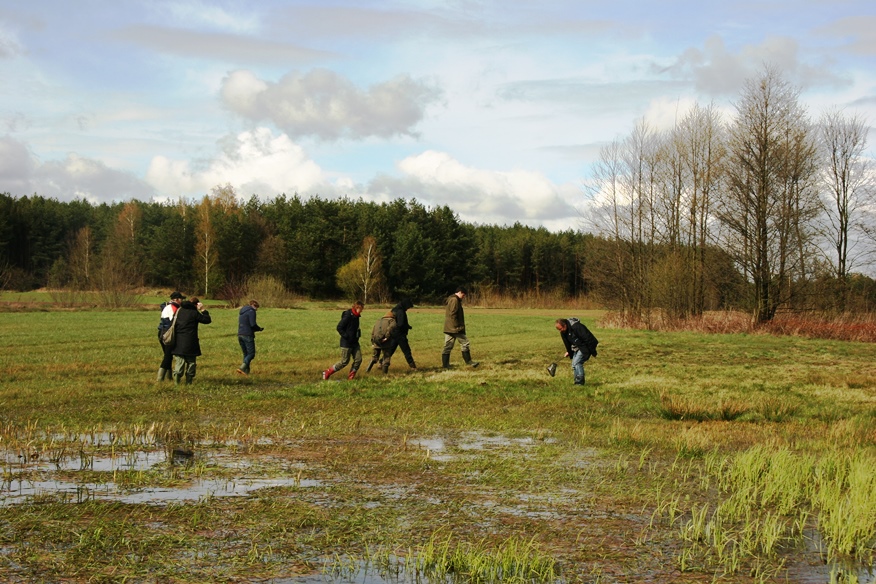
 Afterwards the participants travelled to a valley of the river Narew, where 50 ponds for amphibians were created in year 2002. Amphibian expert Lars Briggs told about characteristics of such habitats. The participants had an opportunity to see the influence of grazing to the suitability of habitats for the tree frogs and the red-bellied toads.
Afterwards the participants travelled to a valley of the river Narew, where 50 ponds for amphibians were created in year 2002. Amphibian expert Lars Briggs told about characteristics of such habitats. The participants had an opportunity to see the influence of grazing to the suitability of habitats for the tree frogs and the red-bellied toads.
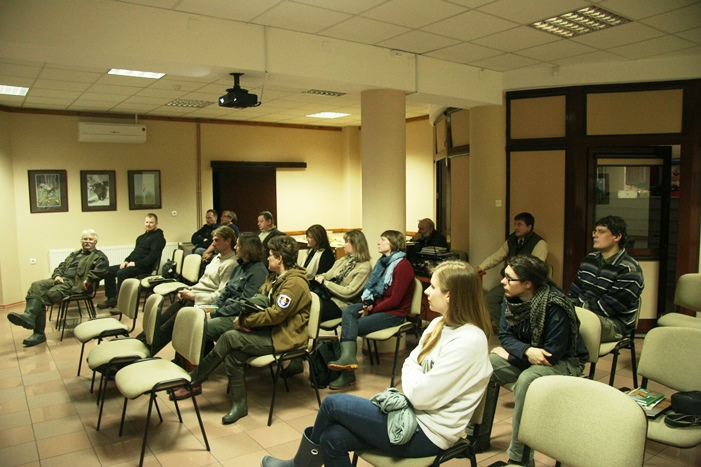

 The last day of the study tour the participants visited Poleski National Park, where they got to know about the conservation efforts for the pond turtles. Park director Jarosław Szymański introduced the situation in the park, chief of the breeding station Radosław Olszewski told about threats and conservation measures of the pond turtles in the park, head of the Chełm Regional Nature Protection Directorate Janusz Holuk presented practical measures of conservation of pond turtle in Chełm Landscape Parks, Project manager Dalia Bastytė shared with Polish colleagues Lithuanian experience about ECONAT Project. After excursion to the turtle rearing facilities and the turtle habitats in Poleski National Park, the participants travelled back to Lithuania. Learned experience for the people who work with reptiles and amphibians will be useful releasing reared turtle juveniles for the first time in Lithuania and maintaining the habitats restored during the Project.
The last day of the study tour the participants visited Poleski National Park, where they got to know about the conservation efforts for the pond turtles. Park director Jarosław Szymański introduced the situation in the park, chief of the breeding station Radosław Olszewski told about threats and conservation measures of the pond turtles in the park, head of the Chełm Regional Nature Protection Directorate Janusz Holuk presented practical measures of conservation of pond turtle in Chełm Landscape Parks, Project manager Dalia Bastytė shared with Polish colleagues Lithuanian experience about ECONAT Project. After excursion to the turtle rearing facilities and the turtle habitats in Poleski National Park, the participants travelled back to Lithuania. Learned experience for the people who work with reptiles and amphibians will be useful releasing reared turtle juveniles for the first time in Lithuania and maintaining the habitats restored during the Project.
More Articles...
- Information boards
- Habitat restoration
- The first underpass for amphibians was set up in Lithuania
- Rearing of the European tree frogs
- Photography exhibition travels further
- 100 young turtles were saved
- Photography contest
- Where the tree frogs jump?
- Turtle offspring in Kaunas Zoo during the summer
- The students helped to restore the habitats of European pond turtle
- European Bombina song contest
- The habitats for the European pond turtles are being restored
